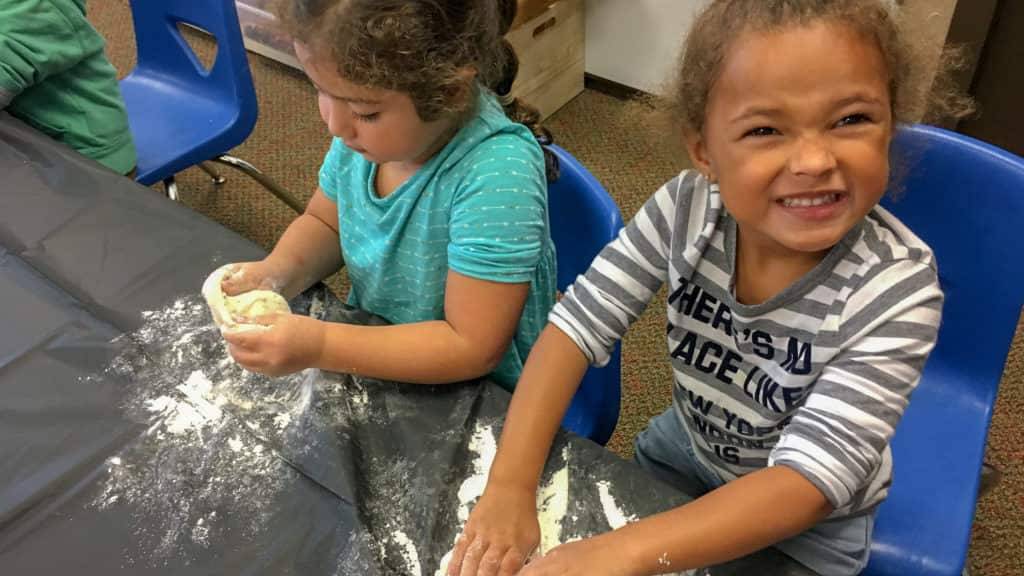
Programming for all students
Logos Academy believes in nurturing creativity in its students to help them become confident, competent, and creative thinkers and problem-solvers for the workforce of the 21st Century.
Our program incorporates STEM activities and extension opportunities for children to explore and create on a daily basis.
Pre-kindergarten (4 and 5 year olds)
Logos Academy’s Pre-Kindergarten Program emphasizes the development of social, emotional, physical and academic skills through self-initiated and directed play based activities.
Our goal is to nurture children’s curiosity while focusing on developing self-esteem, communication, creativity, and critical thinking skills. Logos Academy’s focus is on promoting kindergarten readiness while identifying and nurturing a passion for life long learning.
Each activity has a purpose, whether it is to develop fine or gross motor skills, strengthening independence and confidence, or teaching students how to manage conflict.
Logos Academy’s instructional model challenges students at their individual level so that they can effectively gain the necessary skills in math, literacy, science and social studies to be successful in kindergarten. Our pre-kindergarten program follows the Virginia’s standards of learning for pre-kindergarten.
A wide variety of multi-sensory tasks designed to stimulate and strengthen early math development; pre-reading, and pre-writing skills are offered. Research tells us that young children learn best through play; children gain academic skills through directed and independent play, and song based activities.
Units of study are introduced each month with story time, imaginative play, games, art and “hands-on” activities to support the topics.
Our Core Subjects

Logos Academy’s pre-kindergarten bi-literacy language program offers a comprehensive, well-balanced and integrated approach with the objective of preparing children to enter the world of communication by recognizing the patterns and rhythms of sounds, displaying knowledge of written and spoken words, and demonstrating imagination and creativity in expressing ideas orally and in writing.
Through research we know that children who are taught explicit and systematic phonics are better readers than children who are not taught these foundational reading skills. This is true for both native and non-native speakers. The American Educational Research Association estimates that with explicit phonics instruction and frequent assessment, non-native speakers can master the basics of English literacy.
Our early literacy phonics program emphasizes the development of phonemic and phonological awareness. Activities include learning to identify beginning and ending sounds in words, rhyming, and syllable counting. The students learn to connect sounds with letters, learn to recognize and write their name; form numbers and letters with downward strokes; and put their ideas into words.
Through read alouds and shared reading experiences, students learn to distinguish between letters, sounds, words and sentences. They build the foundation for a love of reading, empowered by reading strategies, guided reading cues, and communication tools to respond to a variety of texts, lyrics and stories. The goal is to give them a solid, rich foundation with an emphasis on phonics and language acquisition so that they will be ready to launch into reading.
Logos Academy’s biliteracy program includes a focus on helping students to build strong speaking and listening skills. Participation in daily dialogues including morning meetings, show and tell, dramatic play, and responses to literature to help students practice speaking in complete sentences, engage in question-and-answer dialogue, make predictions, and express their feelings.
Children benefit from content-related math lessons each day in English and Spanish, so that concepts can be reinforced and fully explored. This dual language approach fosters student comprehension and mastery.
Logos Academy’s math program uses hands-on activities, learning games and math specific manipulatives. Children learn math skills through concrete, visual and tactile experiences. Critical concepts include spatial relationships, sorting and classifying, shapes & patterns, and number sense. Geometry, measurement, and concepts of time and money are also introduced in terms that preschoolers can grasp.
Students engage in a wide variety of multi-sensory tasks designed to stimulate and strengthen early math development.
Logos Academy’s science and social studies programs provide many of our class themes throughout the year. Developing critical thinking and problem solving techniques begins at the early stages of development.
Logos Academy’s science and social studies programs are inquiry based, and students are encouraged to use their thought process to solve everyday occurrences in the classroom. Teachers give students the opportunity to elaborate and explain their ideas, opinions, thoughts and predictions, while presenting them with questions and situations that enable them to develop their critical thinking and problem solving skills. Within this framework, children will learn to investigate the world around them through scientific experiments and cultural observations.
In science, children gain skills observing, describing and classifying; learning a respect for life: animals, plants, and people; and an understanding of seasonal changes including those in animal life cycles.
In social studies, children explore their relationship with themselves, their family, their friends, and their communities. They explore basic feelings and emotions in themselves and those around them. They learn to see themselves as a part of a larger community.
As children learn about various cultures, holidays and traditions, Logos Academy fosters an appreciation of diversity within the school and community.
Formerly known as Early Enrichment, these weekly lessons introduce and reinforce critical and creative thinking skills through books, projects, puzzles, problem solving opportunities and STEM activities.
We offer a weekly Christian Education lesson including stories, songs, games or hands-on activities to help kids understand God’s love for them and the world around them.
We offer stories and activities to increase literacy skills, including letter and number recognition, counting and skip counting, letter and number relationships, initial sounds, and writing names with upper and lower case letters.
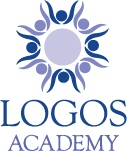
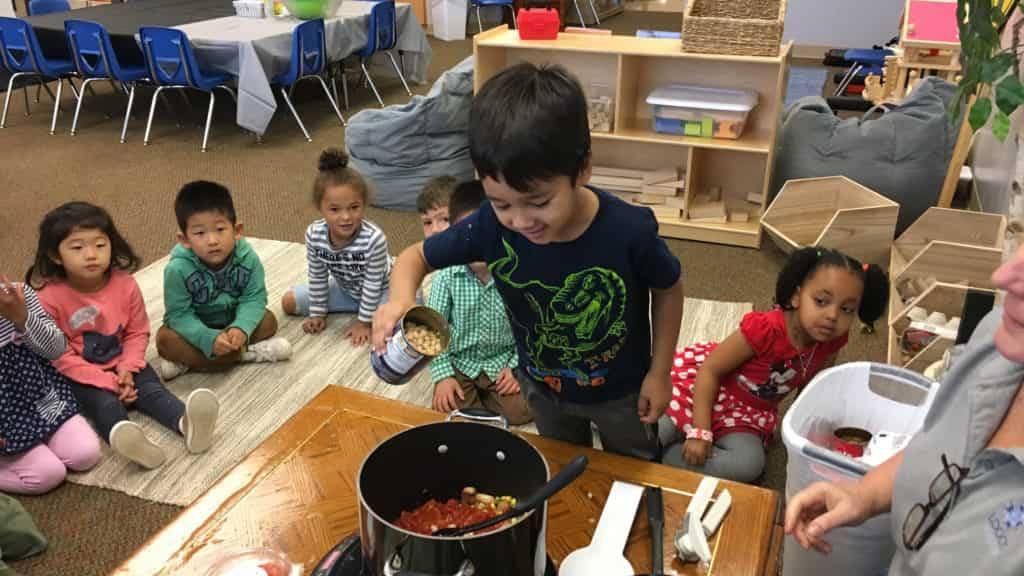
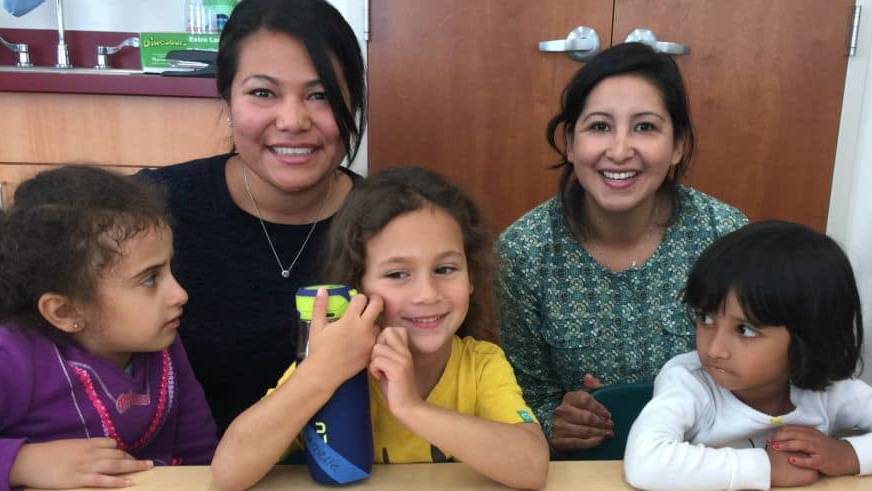
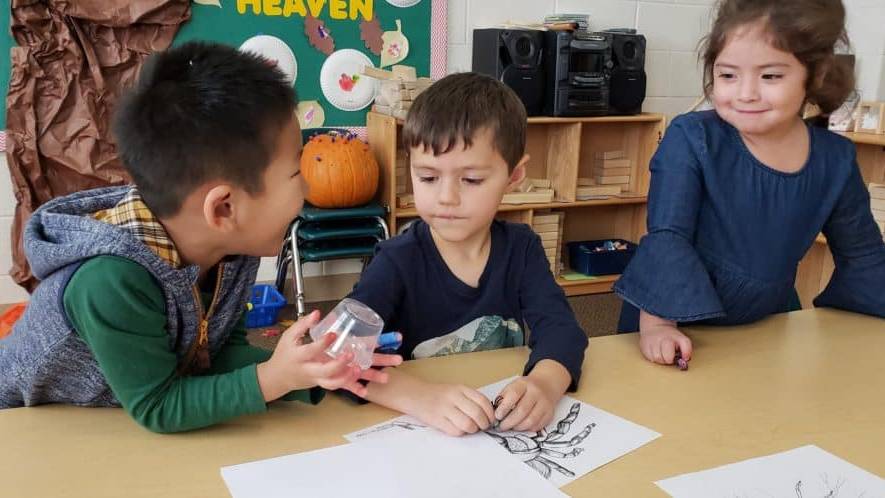
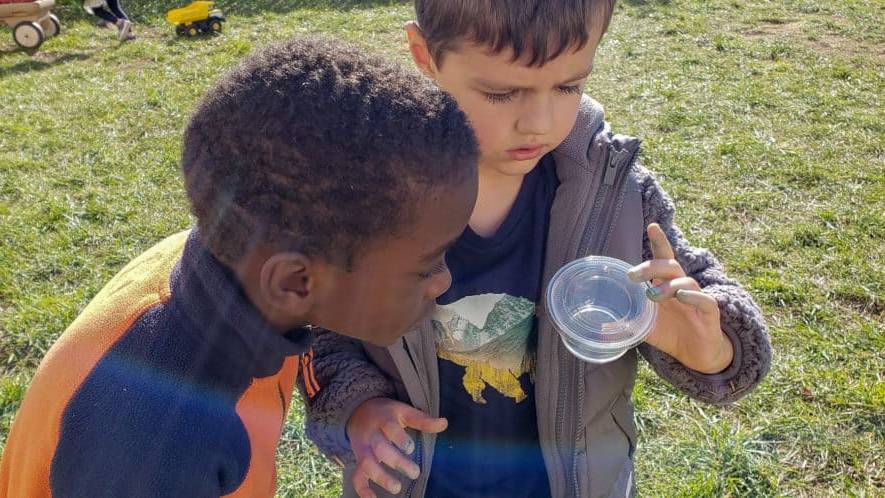
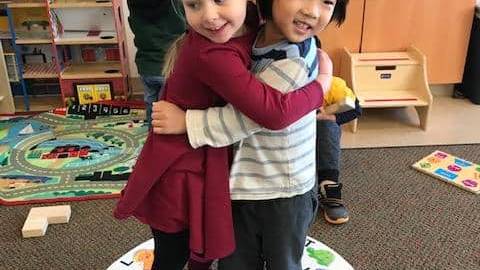
Developing social emotional skills is an important part of children’s preschool experience. Logos Academy strives to provide each child with the tools and confidence it takes to be an effective communicator.
Our program focuses on helping children to develop the ability to share and be accepting of others. Children learn self-control and how to resolve conflict in a positive way through many play-based activities with their peers. Children learn to recognize their needs and effectively ask for what they need. Children’s confidence grows as they attempt and successfully accomplish more activities.
Our program allows children plenty of play where children safely act out different roles and strong feelings in acceptable ways. They learn to resolve conflicts with other children in ways that help them vent frustrations and maintain self-esteem.